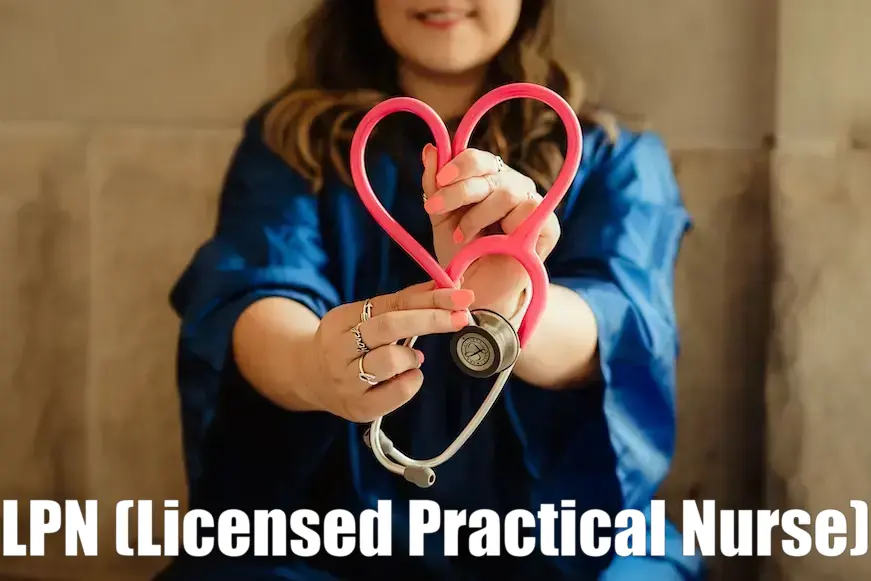Are you thinking about becoming a Registered Nurse (RN)? This guide will walk you through everything you need to know about starting your career as an RN in 2024. From the education required to job expectations and salaries, we’ve got it all covered!
What Is a Registered Nurse?
A Registered Nurse (RN) is a healthcare professional who provides care to patients, helps them recover from illness or injury, and educates them about their health. RNs work in hospitals, clinics, nursing homes, and other healthcare settings. Their main duties include:
- Assessing patients’ health: Checking vital signs like blood pressure and temperature.
- Administering medications: Giving patients their medicines on time.
- Creating care plans: Planning how to treat patients based on their needs.
- Educating patients and families: Teaching them about health conditions and treatments.
Being an RN is both challenging and rewarding. It requires a lot of skill, knowledge, and compassion.

Educational Requirements for Becoming a Registered Nurse
To become a Registered Nurse, you need to complete certain educational steps. Here’s what you need to know:
1. Obtain a Nursing Degree
You need to earn a nursing degree to become an RN. There are a few types of nursing degrees:
- Associate Degree in Nursing (ADN): A two-year degree offered by community colleges.
- Bachelor of Science in Nursing (BSN): A four-year degree offered by universities and colleges.
Tip: A BSN is becoming more popular and is sometimes required for advanced nursing roles.
2. Enroll in a Nursing Program
Choose a nursing program that is accredited by the Accreditation Commission for Education in Nursing (ACEN) or the Commission on Collegiate Nursing Education (CCNE). These programs ensure you get high-quality education.
3. Complete Clinical Training
During your nursing program, you will need to complete clinical rotations. This is hands-on training where you work directly with patients under the supervision of experienced nurses.
4. Obtain a Nursing License
After you graduate from a nursing program, you must pass the NCLEX-RN exam to get your nursing license. The exam tests your knowledge and skills in nursing.
Licensure and Certification
Once you’ve completed your education and training, you need to get licensed to practice as an RN. Here’s what you need to know about licensure and certification:
1. Passing the NCLEX-RN Exam
The NCLEX-RN (National Council Licensure Examination for Registered Nurses) is a standardized test that measures your nursing knowledge and skills. It’s essential for getting your RN license.
Preparation Tip: Use study guides and practice tests to prepare for the NCLEX-RN. Many online resources and review courses are available.
2. State Licensure Requirements
Each state has its own requirements for RN licensure. You will need to apply for a license in the state where you plan to work. Check with your state’s nursing board for specific requirements.
3. Continuing Education
To keep your RN license active, you need to complete continuing education courses. These courses help you stay updated with the latest in nursing practices and technology.
Career Path and Specializations
As an RN, you can choose from various career paths and specializations. Here are some popular options:
1. General Registered Nurse
A general RN provides a wide range of care in different healthcare settings. They can work in hospitals, clinics, or nursing homes.
2. Specialized RNs
- Emergency Room (ER) Nurse: Works in emergency departments and deals with urgent medical situations.
- Pediatric Nurse: Cares for children and infants.
- Geriatric Nurse: Focuses on elderly patients and their unique needs.
- ICU Nurse: Works in Intensive Care Units, providing care to critically ill patients.
Career Tip: Consider what interests you most in nursing when choosing a specialization.
3. Advanced Practice Roles
- Nurse Practitioner (NP): An RN with advanced training who can diagnose and treat medical conditions.
- Clinical Nurse Specialist (CNS): An RN who provides expert care in a specialized area of nursing.
Advancement Tip: To move into advanced roles, you may need additional education and certification.
Salary and Job Outlook
Understanding the salary and job outlook for RNs can help you make informed decisions about your career. Here’s what you need to know:
1. Average RN Salary in 2024
The average salary for a Registered Nurse in 2024 varies by location, experience, and specialization. As of 2024, the average RN salary in the United States is approximately $80,000 per year.
- Highest Salaries: RNs working in metropolitan areas or specialized fields often earn more.
- Lowest Salaries: RNs in rural areas or entry-level positions might earn less.
2. Job Market Trends
The job market for RNs is strong. According to recent trends, the demand for registered nurses is expected to grow by about 6% over the next decade. This growth is driven by an aging population and increased healthcare needs.
Job Outlook Tip: Specializing in high-demand areas can improve your job prospects and salary potential.
Challenges and Rewards of Being a Registered Nurse
Being an RN comes with its challenges and rewards. Here’s a look at both:
Challenges
- Emotional and Physical Demands: Nursing can be physically demanding and emotionally taxing. Long shifts and dealing with critically ill patients can be tough.
- Workplace Stress: High-stress environments, especially in emergency settings, can be challenging.
Rewards
- Helping Others: The ability to make a significant impact on patients’ lives is incredibly rewarding.
- Job Satisfaction: Many RNs find great satisfaction in their work and the opportunity to contribute to their community.
Advice: Taking care of your own health and well-being is important to manage the stresses of the job.
Frequently Asked Questions (FAQs)
1. What are the main responsibilities of a Registered Nurse?
A Registered Nurse (RN) is responsible for assessing patient health, administering medications, creating care plans, and educating patients and their families. RNs work in various settings, including hospitals, clinics, and nursing homes.
2. How long does it take to become a Registered Nurse?
It typically takes about 2 to 4 years to become a Registered Nurse. An Associate Degree in Nursing (ADN) takes approximately 2 years, while a Bachelor of Science in Nursing (BSN) takes about 4 years. After completing your degree, you must pass the NCLEX-RN exam to become licensed.
3. What is the difference between an RN and an LPN?
An RN (Registered Nurse) generally has more extensive education and training compared to an LPN (Licensed Practical Nurse).
RNs typically hold a Bachelor’s or Associate’s degree in nursing and have a broader scope of practice, including the ability to administer complex care and perform more advanced procedures.
4. What are the top specializations for Registered Nurses?
Popular RN specializations include Emergency Room (ER) Nurse, Pediatric Nurse, Geriatric Nurse, and Intensive Care Unit (ICU) Nurse. Each specialization focuses on different patient groups or types of care.
5. How can I prepare for the NCLEX-RN exam?
To prepare for the NCLEX-RN exam, use study guides, practice tests, and online review courses. Many resources are available to help you understand the exam format and key nursing concepts.
6. What are the continuing education requirements for RNs?
Registered Nurses are required to complete continuing education courses to maintain their license. These courses keep RNs updated on the latest medical practices, technologies, and regulations.
7. What is the job outlook for Registered Nurses?
The job outlook for Registered Nurses is positive, with an expected growth rate of about 6% over the next decade. The demand for RNs is driven by an aging population and increased healthcare needs.
8. How much do Registered Nurses make in 2024?
In 2024, the average salary for a Registered Nurse in the United States is approximately $80,000 per year. Salaries can vary based on location, experience, and specialization.
9. What are the biggest challenges faced by Registered Nurses?
Common challenges for Registered Nurses include dealing with high-stress environments, managing long shifts, and handling emotional strain from patient care. It’s important for RNs to practice self-care and seek support when needed.
10. What are the benefits of becoming a Registered Nurse?
Benefits of becoming a Registered Nurse include job stability, the opportunity to make a significant impact on patients’ lives, and various career advancement opportunities. RNs also often enjoy a sense of personal fulfillment from their work.
Conclusion
Becoming a Registered Nurse is a fulfilling career choice that offers a chance to make a real difference in people’s lives. With the right education, licensure, and dedication, you can embark on a successful and rewarding career in nursing.
If you’re ready to take the next step, start by researching nursing programs and preparing for the NCLEX-RN exam. Explore different specializations to find the one that best matches your interests and goals.
Ready to learn more? Explore our other blog posts for more tips and information on nursing careers. Don’t forget to subscribe to our newsletter for updates and resources!
This detailed guide covers the essential aspects of becoming a Registered Nurse in 2024. By addressing educational requirements, licensure, specializations, salary, and challenges, it provides a comprehensive overview for anyone interested in pursuing a nursing career.

